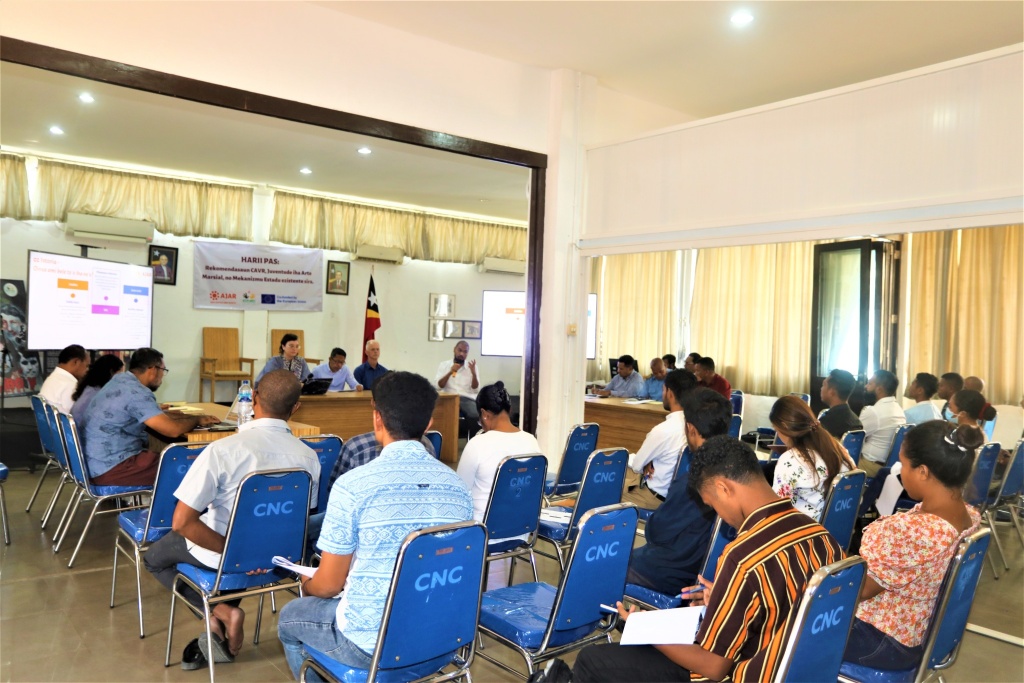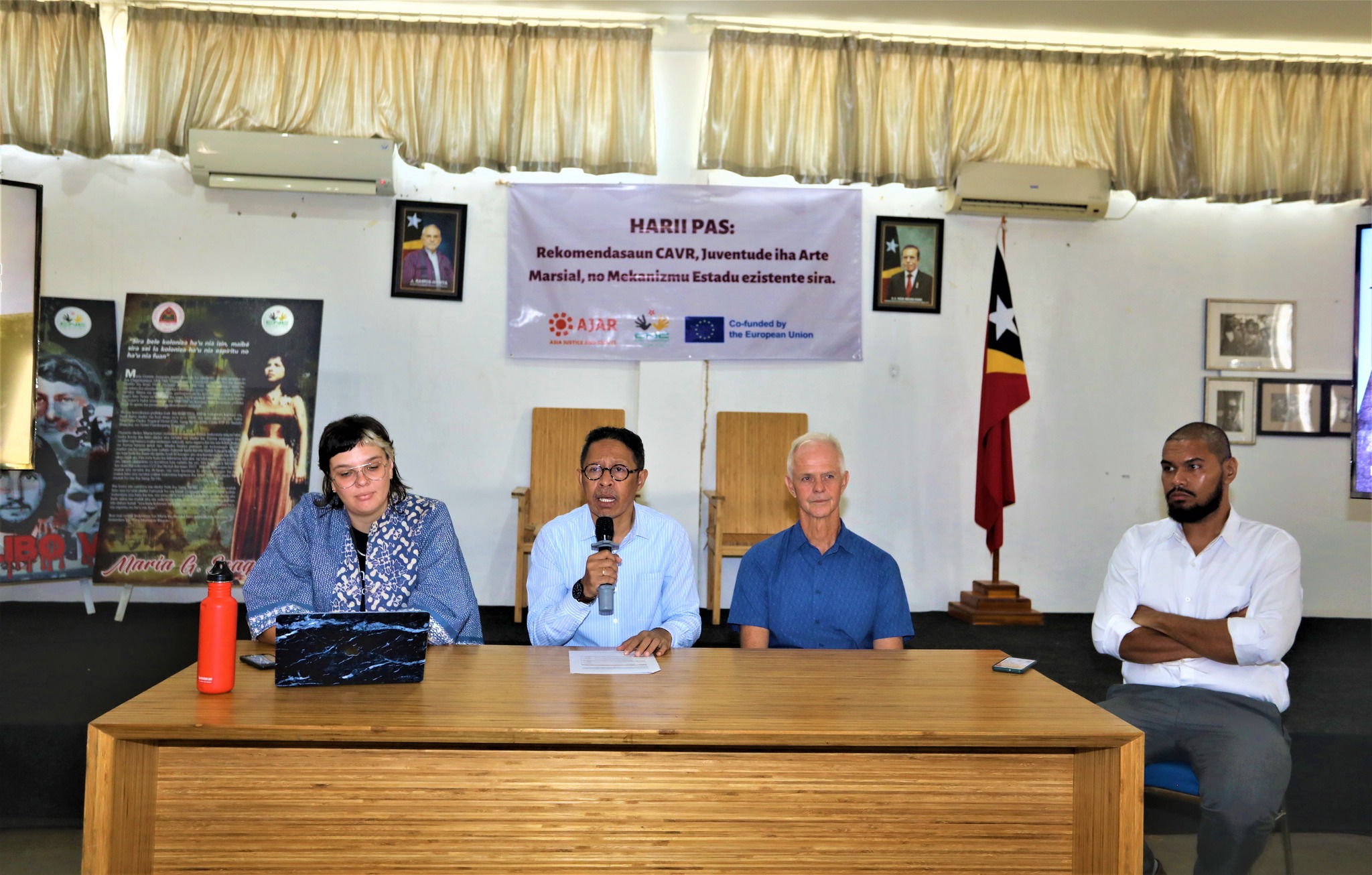
With the birth of a new nation, hopes were high of a government committed to the people’s wellbeing, including the new generation born after independence. However, the frequent clashes among gangs and supporters of political parties, mainly martial arts groups, eventually led to government bans on the sports itself.
To seek solutions to the frequent violence among the martial arts groups, on 6 December 2022, AJAR Timor Leste and Centro Nacional Chega (CNC) organised a roundtable discussion among the young members of the groups. They came from diverse groups of different areas, including from Marcarenhas, Beto and Becora in Dili.

“Our nation experienced a long oppression, with society coming out of trauma. During the occupation, youth participated in martial arts where some groups provided a safe space for the clandestine movement. Now we need to find a way so that they can continue to contribute to peace,” said Hugo Fernandes, the CNC Executive Director.
Recommendations for the youth were in a long list of the report of the nation’s Commission for Truth and Reconciliation (CAVR), submitted on 31 October 2005 to then-president Xanana Gusmao. In 2013, he had said he had “run out of patience” when banning martial arts. However, the government has refrained from closing the groups that widely attract the youth; but which are often used against each other, especially before elections.
One recommendation on youth in the report titled Chega! states, “The power of sport, music, drama and other arts in Timor-Leste are harnessed as tools to promote peace, non-violence and the building of positive values and community relations, especially among youth.”